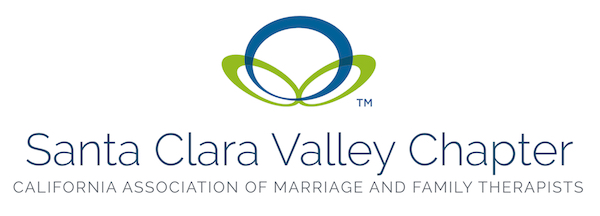Presented by Amanda Cortez, LMFT and Hakikat Sahota, LPCC
1 CE credit. This event will not be recorded.
Our workshop delves into the important interplay between faith-based identities and mental health. We'll explore religious coping and religious trauma, highlighting how faith can offer support and present challenges in clients' mental health experiences. Emphasizing empathy and self-reflection, we aim to equip mental health providers to create inclusive and safe spaces for diverse faith communities, acknowledging the nuances beyond our own biases. Join us to deepen your understanding of how faith intersects with mental health, empowering us to engage diverse communities in our care.
We begin with a warm introduction, sharing our roles, clientele focuses, and personal anecdotes to set the stage for meaningful exploration of faith-based considerations in multicultural counseling. Central to our discussion is recognizing faith's intricate role in mental health, urging attendees to delve deeper into its complexities.
As the workshop continues, we analyze the impact of faith-based beliefs on mental well-being, including religious trauma and coping mechanisms. By exploring the benefits and obstacles of faith-based beliefs, we aim to share resources on the interplay between faith and mental health.
Equipping our audience with practical strategies is crucial. We provide tools and resources to navigate clients' belief systems with sensitivity and respect, emphasizing the importance of facilitating clients' exploration of their faith and self-definition of beliefs. We aim to empower providers to practice self-discovery and recognize biases within faith-based communities.
A self-reflection activity will encourage participants to engage in introspection, recognizing their biases and strengths for building rapport. This pause in our workshop helps providers reflect on their areas of growth when working with diverse communities.
In the final segment, we offer practical tools and resources for engaging with faith-based communities, including assessments and ways to create safe spaces. Our workshop concludes with an invitation for anonymous questions and case studies, fostering a collaborative environment of shared learning and growth.
We hope this workshop encourages mental health providers to begin their journey of understanding, self-reflection, and empowerment as they navigate working with faith-based communities.
Program Goal
To equip mental health professionals with practical strategies and tools for addressing the interplay between faith-based identities and mental health, fostering inclusive and empathetic therapeutic practices that support clients from diverse faith backgrounds.
Learning Objectives
At the end of this presentation, participants will be able to:
- Identify three key ways in which faith-based identities can both support and challenge mental health experiences.
- Analyze two methods for addressing religious trauma and coping mechanisms within therapeutic settings.
- Explain the role of empathy and self-reflection in creating inclusive spaces for diverse faith communities.
- Compare three practical strategies for navigating clients' belief systems with sensitivity and respect.
- Discuss the impact of faith on emotional well-being, including both positive and negative influences.
- Describe two tools or resources for facilitating clients' exploration of their faith and self-definition of beliefs.
- Evaluate the effectiveness of a self-reflection activity in recognizing personal biases and strengths when working with diverse communities.
About the Presenters
 Amanda Cortez
Amanda Cortez
I work with adolescents, individuals, and families. I am certified in Brainspotting, trained in IFS and am passionate about working with trauma survivors.
I am passionate about providing treatment for individuals who would like to explore parent-child attachment dynamics as adults, exploration of holding self-compassion in relationships with friends, intimate partners and/or family, and who may have a history or trauma. I work with individuals, teen, couples and family therapy. My specialities include treating depression, suicidal ideation, anxiety, parent/teen conflict, mother/father-daughter/son relational dynamics, mood disorders, sleep disorders, trauma, sexual identity, bi- racial dynamics and body positivity. In therapy, I integrate whole wellness and health, build upon your strengths, work towards inspiring creativity within yourself as I believe everyone is the author of their own
lives.
 Hakikat Sahota
Hakikat Sahota
As an LPCC and Clinical Director, I have worked with children and families from diverse backgrounds, guiding clients at various developmental levels. I specialize in working with children, adolescents, and adults in providing individual and family therapy. My specialties include treating depression, suicidal ideation, anger management, anxiety, building distress tolerance, mood disorders, grief counseling, trauma- informed approaches, behavioral issues, and attachment in children and family conflict. I also embed multicultural competence and cultural factors throughout my work with children and families. I have worked with children and families from diverse backgrounds, guiding clients at various developmental levels through their behavioral & emotional stressors. I am continuously adapting treatment plans to ensure that clients’ strengths are utilized as tools to help cope with their mental and emotional challenges. I value flexibility & perspective-taking in the process of therapy.
Outline with timeline
Introduction of Speakers: 5 minutes
Introduction of Topic: 7 minutes
Positive & Negative Impacts: 10 minutes
Religious Coping: 7 Minutes
Religious Trauma: 7 minutes
What defines faith: 3 minutes
Introspection activity: 5 minutes
Intentional Therapeutic Spaces: 10 minutes
Q&A: 10 minutes
This is an introductory level course.
TARGET AUDIENCE: LCSWs, LMFTs, LPCCs, LEPs
If you miss any of the presentation, you will not be eligible for the CEUs. This course meets the qualifications of 1 continuing education credit for LMFTs, LPCCs, LEPs and/or LCSWs as required by the California Board of Behavioral Sciences. SCV-CAMFT is a CAMFT-approved Continuing Education Provider (CEPA 052466).
The views expressed in this presentation are those of the speaker and not, necessarily, of SCV-CAMFT. SCV-CAMFT can not be held liable for any damages arising from recommendations or advice given by our speakers or any actions or decisions arising out of the content of this presentation. Presentations at SCV-CAMFT events do not constitute an endorsement of the vendor or speaker's views, products or services.
Event Policy Information
